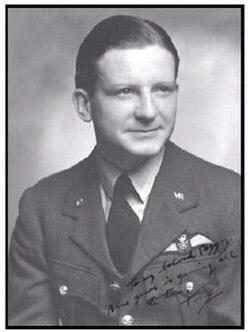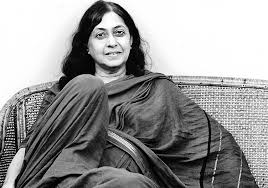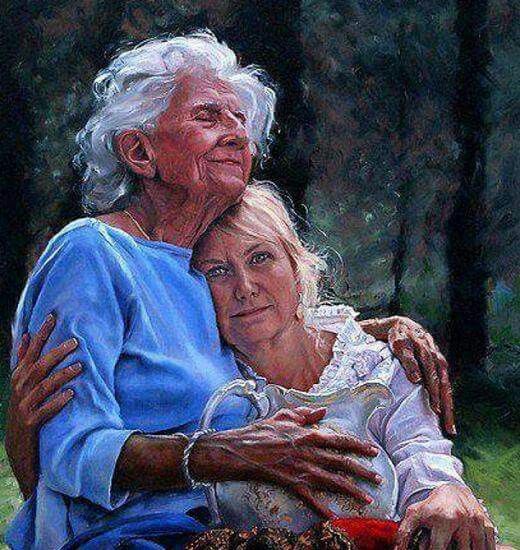MY MOTHER AT SIXTY SIX for Class 12 ENGLISH
THEME
The story revolves around a teenage girl Sophie, her family and friends. She is a daydreamer, who is always lost in her dreams of becoming rich and sophisticated though in reality she is a worker at a biscuit factory. The story suddenly twists up when Sophie makes a wild imagination of meeting Danny Casey, a famous footballer. She also makes a story in front of her brother that Casey will come to meet her on a fixed day as per a promise he made to her.
THEME
The poem revolves around the the theme of advancing age and the fear of loss and separation associated with it. It showcases morbidity that surrounds the mother at sixty-six and how the poetess struggles to hide away her fearful realization and resultant sorrow at the thought of losing her mother forever to death. It subtly captures the mother-daughter bond. This poem has been written as a single sentence showing the endless thoughts of poetess regarding her mother.
थीम

Kahani ek ladki Sophie, uske parivaar aur doston ke ird-gird ghumti hai. Veh ek daydreamer hai, jo hamesha ameer banne ke apne sapnon mein khoyi rehti hai, halanki vastav mein veh ek biscuit factory mein kaam karne vaali hai. Jab Sophie ek jaane maane footballer Danny Casey se milne ki ek kalpana karti hai, to kahani achanak badal jaati hai. Veh apne bhai ke samne ek kahani bhi banati hai ki Casey usse kiye gaye vaade ke anusar nishchit din par usse milne aayega.
EXPLANATION
कवयित्री इस कविता में अपनी माँ की बढ़ती हुई उम्र और उसकी वजह से उनको खोने के डर के बारे में बताती हैं। यह कविता उनकी माँ के बारे में बताती हैं जो अब 66 साल की हो गई हैं और उनके चहरे पर अब कोई चमक नहीं रही और कवयित्री बड़ी मुश्किल से उन्हें खोने के डर को छुपाती हैं। यह कविता माँ और बेटी के प्यार को बहुत अच्छी तरह से दर्शाती हैं। यह कविता एकल वाक्य (single sentence) के रूप में अपनी माँ के बारे में कवयित्री के अंतहीन (endless) विचारों को दर्शाती है।
ABOUT THE AUTHOR

A.R Barton is a modern writer, who lives in Zurich and writes in English. In the story Going Places, Barton explores the theme of adolescent fantasizing and hero worship.
ABOUT THE AUTHOR

Kamala Das (1934) was born in Malabar, Kerala. Her works are known for their originality, versatility and the indigenous flavour of the soil. Kamala Das has published many novels and short stories in English and Malayalam under the name ‘Madhavikutty’. She is a sensitive writer who captures the complex subtleties of human relationships in lyrical idiom, My Mother at Sixty-six is an example.
लेखक के बारे में
A.R Barton ek adhunik lekhak hain, jo Zurich mein rehte hain aur English mein likhte hain. 'Going Places' kahani mein, Barton kishor kalpana aur nayak pooja ke vishay ki padtal karte hai.
EXPLANATION

कमला दास का जन्म 1934 में मालाबार, केरल में हुआ था। उनके काम मौलिकता (दिल से किये जाने वाले काम, originality), versatility (अलग अलग तरह के काम) और स्वदेशी कामो (Indigeneous works) के लिए प्रसिद्ध (famous) हैं। कमला दास ने काफ़ी उपन्यास और छोटी कहानियां लिखी हैं अंग्रेज़ीऔर मलयालम भाषा में और उनका कलम (pen) नाम 'माधविकुट्टी' रहा है, उनके सभी काम इसी नाम से जाने जाते हैं। वह एक संवेदनशील (sensitive) लेखिका हैं जो मानवी संबंध (human relationships) को अच्छे से समझती हैं। "माई मदर एट सिक्सटी-सिक्स " इस बात का सबसे अच्छा उदाहरण है।
PARAGRAPH 1
“When I leave,” Sophie said, coming home from school, “I’m going to have a boutique.”
Jansie, linking arms with her along the street; looked doubtful.
“Takes money, Soaf, something like that.”
“I’ll find it,” Sophie said, staring far down the street.
“Take you a long time to save that much.”
“Well I’ll be a manager then — yes, of course — to begin with. Till I’ve got enough. But anyway, I know just how it’s all going to look.”
“They wouldn’t make you manager straight off, Soaf.”
“I’ll be like Mary Quant,” Sophie said. “I’ll be a natural. They’ll see it from the start. I’ll have the most amazing shop this city’s ever seen.’”
PARAGRAPH 1

Driving from my parent’s home to
Cochin last Friday morning,
I saw my mother, beside me,
doze, open mouthed, her face ashen like that
of a corpse and realised with pain
that she was as old as she looked but soon
put that thought away, and looked out at Young Trees sprinting,
the merry children spilling out of their homes,
IMPORTANT WORDS
Doubtful: feeling uncertain about something, संदिग्ध
Staring: look fixedly or vacantly at someone or something with one's eyes wide open, घूरना
Linking arms: Holding hands, हाथ पकड़ना
IMPORTANT WORDS
Beside - on one side (के बगल में)
ashen - very pale (बहुत पीला)
corpse - dead body (लाश)
sprint - to run a short distance as fast as you can (थोड़ी दूरी की तेज़ दौड़)
merry - happy(आनंदित)
spill - to come out of a place suddenly and go in different directions (झटके से बाहर आकर इधर-उधर बिखर जाना)
EXPLANATION
Do ladkiya school se ghar vapis aa rahi thi jinka naam Sophie aur Jansie tha, Sophie ne kaha, "Jab mai school khatam karlungi, mera apna boutique hoga."
Jansie, sadak par uska hath pakad kar khadi thi; aur pareshaan lag rahi thi.
Jansie ne kaha ki "In sbke liye paisa chahiye hota hai Sophie." Sophie ne apne samne wali sadak ko dekhte hue kaha, "Woh ajayega" .
"Itna paisa ikatha krne ke liye tumhe bahut samay lagega," Jansie ne kaha.
"Phir main ek prabandhak(manager) banungi - han, pakka– shuruat mein jab tak mai paise na ikathe karlun, haalanki mujhe pata hai mera boutique kaisa lagega.”
Jansie ne jawab diya ki "Veh apko seedhe prabandhak(manager) nahi bana sakte, Soaf."
"Main Mary Quant jaisi banungi," Sophie ne kaha. “Main svabhavik rahungi. Ve ise shuru se dekhenge. Mere paas is sheher ki ab tak ki sabse adbhut dukan hogi."
EXPLANATION

अपनी माँ के घर से शुक्रवार की सुबाह जब कवयित्री कोचीन एयरपोर्ट (Cochin airport) जा रही थी, तब उन्होंने साइड में बैठी अपनी माँ की तरफ देखा, उनकी माँ मुंह खोलकर सो रही थी, कवयित्री ने मुंह खोल कर सोती हुई अपनी माँ की तुलना लाश (corpse) के साथ की, उनका चेहरा एक लाश की तरह बेजान (lifeless) और बेरंग (colourless) लग रहा था, ये देख कर कवयित्री को एहसास हुआ की उनकी माँ बूढ़ी हो गई हैं, कवयित्री के मन में उनको खोने का डर बैठ गया, लेकिन जल्दी ही उन्होंने अपना ध्यान भटकाया और अपना ध्यान भटकाने के लिए कार की खिड़की से बाहर देखने लगी, उन्होन बड़े - बड़े पेड़ को देखा जो की उन्हें भागते हुए लग रहे थे, जब हम किसी तेज चलने वाले वाहन में होते हैं तो रास्ते में आने वाली बाकी सारी वस्तुएं हमें विपरीत दिशा में भागती हुई लगती हैं, कवयित्री ने यहाँ "यंग ट्रीज स्प्रिंटिंग" (young trees sprinting) की तुलना भागती हुई ज़िन्दगी से की है यानि वह कहना चाहती है कि समय ने कैसे इतनी जल्दी उनकी जवान माँ को इतना बूढ़ा बना दिया और समय इतनी जल्दी बीत गया, फिर कवयित्री खिड़की के बाहर ख़ुशी से खेलते हुए बच्चों को देखती हैं और यहाँ "Merry children" और "Young trees" की तुलना अपनी माँ से करती हैं कि कैसे वे इन बच्चों और जवान पेड़ों की तुलना में कितनी थकी हुई और बेजान सी लगती हैं,
PARAGRAPH 2
Jansie, knowing they were both earmarked for the biscuit factory, became melancholy. She wished Sophie wouldn’t say these things.
When they reached Sophie’s street Jansie said, “It’s only a few months away now, Soaf, you really should be sensible. They don’t pay well for shop work, you know that, your dad would never allow it.”
“Or an actress. Now there’s real money in that. Yes, and I could maybe have the boutique on the side. Actresses don’t work full time, do they? Anyway, that or a fashion designer, you know — something a bit sophisticated.”
PARAGRAPH 2

but after the airport’s security check,
standing a few yards away,
I looked again at her, wan, pale
as a late winter’s moon and
felt that old familiar ache,
my childhood’s fear,
but all I said was, see you soon, Amma,
all I did was smile and smile
and smile......
IMPORTANT WORDS
Earmarked: Designate (funds or resources) for a particular purpose, अनुदान देना
Melancholy: A feeling of pensive sadness, typically with no obvious cause, उदासी
Sophisticated: Having, revealing, or involving a great deal of worldly experience and knowledge of fashion and culture, परिष्कृत
IMPORTANT WORDS
Yard - an area outside a building (बाड़ा)
Wan - looking pale and ill or tired (पीला पड़ा हुआ और बीमार या थका हुआ)
Pale - skin that is light in color (जिसकी त्वचा पीली पड़ गई है)
Ache - a pain that lasts for a long time (ऐसा दर्द जो देर तक रहे)
EXPLANATION
Jansie ko yeh maloom tha ki ve dono biscuit factory ke liye hi bane the aur last mein unhe vahi kaam karna hoga, yeh sochkar veh udas ho gayi. Veh chahti thi ki Sophie ye batein na kahe.
Jab veh Sophie ki gali mein pahunche to Jansie ne kaha, “Ab bas kuch mahine hi bache hain, Soaf, tumhe sach mei samajhdar banna chahiye. Ve dukan ke kaam ke liye achi tankha (salary) nahi dete hain, tum janti ho ki tumhare pitaji iski kabhi bhi anumati nahi denge."
Sophie ne jawab diya ki “Ya main ek actress banjaungi. Ab usme kaafi paisa hai. Haan, aur main shayad uske saath mein boutique bhi khol sakti hoon. Koi actress pure samay kaam nahi karti hain, haina? Vaise bhi, veh ya ek fashion designer; dono mei se koi bhi banna sahi hai; yeh dono hi prabhavshali hain.”
EXPLANATION
अब वे दोनो एयरपोर्ट पहोंच गई थी, एयरपोर्ट सिक्योरिटी चेक के बाद कुछ दूर खड़े होकर उन्होंने अपनी माँ को फिर से देखा, उनका चेहरा बेजान हो गया था और वह "विंटर्स मून" के जैसा लग रहा था, यहां पर कवयित्री अपनी माँ की तुलना "लेट नाईट विंटर्स मून" से करती है जिस से वह ये बताना चाह रही है कि जैसे सर्दियों में चाँद हमें दिखता नहीं क्योंकि धुंध (fog) चाँद के सामने आकर उसे छुपा देती है और उसमें कोई भी चमक नहीं बचती, वैसे ही उनकी माँ के चेहरे पर भी झुर्रियां (wrinkles) आ गई हैं और वे बिलकुल बेरंग हो गई हैं और उनमें भी कोई चमक नहीं बची है, कवयित्री के बचपन का डर अब उनके लिए और भी भयानक (डरावना) हो गया है, उन्हें अपने बचपन की याद आई जब उन्हें अपनी माँ से दूर होने का डर था कि कहीं कोई उनको कवयित्री से दूर न कर दे, वही डर अब उन्हें दोबारा महसूस हुआ कि कहीं मृत्यु उन्हें उनकी माँ से दूर न ले जाए, लेकिन उन्होंने अपना डर छुपा लिया और बस इतना ही कहा, "जल्द ही मिलते हैं, अम्मा" (see you soon, Amma!), और वे सिर्फ मुस्कुरायी, यहाँ कवयित्री ने "smile and smile and smile" का प्रयोग भावनाएं दिखाने के लिए किया है जिसमें पहली मुस्कान उनके अहसास को दर्शाता है कि उनकी माँ कितनी बूढ़ी हो गई हैं, दूसरी मुस्कान उनकी बहादुरी को कि कैसे वे अपने डर को एक मुस्कान में छुपा रही हैं और तीसरी मुस्कान उनकी आशा को कि वह आशा करती है कि वह दोबारा उनसे मिल पाएँगी, वह इतनी दुखी थी की वह रो पड़ती लेकिन बहुत बहादुरी से उन्होंने सिर्फ इतना कहा, "जल्द ही मिलते हैं, अम्मा" और यह कह कर उन्हें मस्कुराते हुए चेहरे के साथ अलविदा कहती हैं क्योंकि वे अपनी माँ को दुख नहीं पहुंचाना चाहती थी।
SUMMARY

And she turned in through the open street door leaving Jansie standing in the rain.
“If ever I come into money I’ll buy a boutique.”
“Huh - if you ever come into money... if you ever come into money you’ll buy us a blessed decent house to live in, thank you very much.”
Sophie’s father was scooping shepherd’s pie into his mouth as hard as he could go, his plump face still grimy and sweat — marked from the day.
“She thinks money grows on trees, don’t she, Dad?’ said little Derek, hanging on the back of his father’s chair. Their mother sighed.
SUMMARY

EXPLANATION
Blessed: Made holy; consecrated, सौभाग्यशाली
Decent: Of an acceptable standard; satisfactory, सभ्य
Scooping: Pick up and move, निकालना
Grimy: Covered with or characterized by grime, साँवला
EXPLANATION
LITERARY DEVICES
Aur veh Jansie ko bahar barish mein khada chodkar, ghar ke andar aa gayi. Uske ghar ka darvaza khula hua tha.
"Agar kabhi mujhe paise milte hain to main ek boutique kharidungi."
Sophie ke pita ne kaha, "Huh - agar apke paas kabhi paise aate hain to aap hamare rehne ke liye ek sabhy ghar kharidengi, bahut-bahut dhanyavad."
Sophie ke pita shephard pie kha rahe the. Unka gol chehra abhi bhi gambhir tha aur pasine aur mitti se tar tha- poore din ki thakaan unke chehre par dikh rahi thi.
"Veh sochti hai ki ped par paise ugte hai, hain ki nahi, pitaji?" Uske chote bhai Derek ne apne pita ji ki kursi ke piche latakte huye kaha. Unki maa ne ye sunkar lambi saas bhari.
LITERARY DEVICES
Simile: A figure of speech involving the comparison of one thing with another thing of a different kind, used to make a description more emphatic or vivid. Generally uses the words 'like', 'as' to show comparison or similarity. For example : 1. Ashen like that of a corpse
2. Pale as a late winter’s moon.
Repetition: Repetition is the simple repeating of a word, within a short space of words, For example : 'smile and smile and smile' that represents realization, hope and bravery.
Personification: As a literary device, personification is the projection of characteristics that normally belong only to humans onto inanimate objects, animals, deities, or forces of nature. In this poem, trees have been personified : Trees sprinting.
Metaphor:It is used to make a comparison between two things that aren't alike but do have something in common. In this poem, the poet uses the device of metaphor in line when she speaks ‘the merry children spilling out of their homes’ to show the contrary image of her mother’s age and approaching en
Alliteration: the use of the same letter or sound at the beginning of words that are close together, as in “my mother”, “that thought”, “I said was, see you soon”.
QUESTION ANSWERS
Sophie watched her back stooped over the sink and wondered at the incongruity of the delicate bow which fastened her apron strings. The delicate-seeming bow and the crooked back. The evening had already blacked in the windows and the small room was steamy from the stove and cluttered with the heavy-breathing man in his vest at the table and the dirty washing piled up in the corner. Sophie felt a tightening in her throat. She went to look for her brother Geoff.
QUESTION ANSWERS
Question 1. What is the kind of pain and ache that the poet feels?
The poet is deeply anguished after realizing that she will lose her mother forever. Her death is near and she may not be able to see her mother next year. Her life is uncertain. This jolts the poet inside out, but she tries to brave the fear by focusing on the view outside the car window. The pain and ache she feels are similar to the one she felt when she was a child. It is normal for children to feel afraid of losing their parents. Young children or infants want to stay beside their parents all the time. The poet felt the same when she was a child and lived in constant fear of her mother being taken away from her. She realizes that this awful pain has returned with the realization of her mother's inevitable death.
Question 2. Why are the young trees described as ‘sprinting’?
The poet has personified trees in this presentation. She has given trees aspect of human nature and attributes. Sprinting means running over a short distance in a limited period of time. While driving to Cochin airport, she looks out of her car towards trees and children. She describes them to be sprinting. She is in her fast-moving vehicle and so, trees seem to be running along with her vehicle. It is also a representation of how the scene outside the car is completely different from the scene inside the car. Outside, even the trees seem to move with life whereas inside, her mother seems ashen like a corpse.
Question 3. Why has the poet brought in the image of the merry children ‘spilling out of their homes’ ?
The image of merry children spilling out of their home serves to contrast the scene of life, enthusiasm, spirited young children with death, lifelessness, lethargic, helpless and morbid old age. The children come out of their homes in large numbers to play with each other, to celebrate and enjoy life. But, the poet's mother is sleeping open-mouthed, not interested in her surroundings and unenthusiastic about life. She is old and frail, ageing and decaying while the children represent spontaneous overflow of life.
Question 4. What do the parting words of the poet and her smile signify?
The parting words of the poet are see you soon, Amma, all I did was smile, smile, smile and smile. She is overtaken by grief and fear. She feels the return of her childhood fear of losing her mother. She is scared of losing her mother forever. But she does not show all this to her mother. She just smiled and waved bye to her mother. The way the poem ends with smile and smile and smile highlights the pain veiled under the garb of the smile. She reassures herself and her mother by saying see you soon, Amma and hopes to see her mother again.
PREVIOUS YEAR QUESTIONS
Stooped: To bend the body or a part of the body forward and downward sometimes, झुकना
Incongruity: The state of being incongruous; incompatibility, not matching;अयोग्यता
Delicate: soft; नाज़ुक
Crooked: Bent or twisted out of shape or out of place, टेढा मुडा हुआ
Cluttered: Cover or fill, अव्यवस्थित
EXTRA QUESTIONS
Question 1. Why has the mother been compared to the ‘late winter’s moon’?
The poet compares her mother to the ‘late winter’s moon’ because much like the moon she can see her mother getting paler and fading by the second. Also, as the late winter moon gets overshadowed by the fog and mist in the sky similarly her mother can get overshadowed by death at any time.
Question 2. What does the poet realise with pain? Why does the poet ‘put that thought away and look outside?
With one look at her mother sleeping, the poet realises with pain that her glow is fading and she looks lifeless like a corpse. This image of her mother pains the poet’s heart. The poet can’t bear to think of this thus she ‘put that thought away and looked outside to see the picture of life, happiness, and activity.
Question 3. What is the poet’s familiar ache and why does it return?
Once the poet feels the pain of having to potentially lose her mother, she realises that this pain is familiar to her since she felt it in her childhood also. She is pained and frightened by the idea that she may have to face all these things herself.
GLOSSARY
Sophie apni maa ki peeth ko sink ki taraf jhuka dekhti hai aur unki apron ki strings(dori) ki asamanta ko dekh kar hairan hojati hai. Nazuk-si lagne vaali apron aur tedhi peeth ka matlab yahi hai ki unki peeth kaam karne ke vajah se jhuk gayi thi. Sham hone ki vajah se pehle hi khidkiya kali pad gayi thi aur chote kamre mein choolhe se bhaap bankar dhua ud raha tha aur table par apni baniyan mein bhari-bharkam aadmi yaani Sophie ke pita the aur dhule bartan kone mein the matlab kamre mein samaan faila hua tha. Sophie ko apne gale mein kasav mehsoos hua. Fir veh apne bhai Geoff ki talash mein gayi.
PREVIOUS YEAR QUESTIONS
Question 1. Why are the young trees described as ‘sprinting’? (Delhi 2010)
ANSWER- The young trees are ‘sprinting’ that is rushing past the poet as she is travelling in a very fast-moving car. While travelling in a speeding vehicle, the objects outside appear to be rushing past us in the opposite direction. These sprinting trees are in stark contrast to the passive old lady sitting inside the car.
Question 2. What is the significance of the parting words of the poet and her smile in ‘My Mother at Sixty-six’? (All India 2010)
ANSWER- The poet’s parting words convey the dilemma and confusion in her mind. Her superficial smile expresses her helplessness. She is anxious about her mother’s frail health and fears that anything can happen to her mother. But, on the other hand, she also nurtures a faint hope that her mother survives long enough so that they can meet again.
Question 3. How did Kamala Das put away the thought of her mother’s old age? (Comptt. Delhi 2010)
ANSWER- The poet started looking out of the window because she wanted to drive away from the pain and agony she was experiencing by looking at her aged mother. She looked outside at the world which was full of life and activity. She saw young trees running past her and merry children sprinting out of their homes to play.
GLOSSARY
Doze(n): a short, light sleep;(अल्प, निद्र)
Ashen(adj): very pale, like ash; (भस्मवर्ण)
Corpse(n): a dead body; (लाश)
Sprinting(n): here, shooting out of the ground; (तेज़ दौड़)
Spill(v): here, to move out in great numbers; (बड़ी संख्या में निकल कर बाहर आना)
Wan(adj): unnaturally pale, as from physical or emotional distress; (मुरझाया)
Ache(n): pain; दर्द
